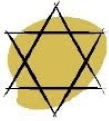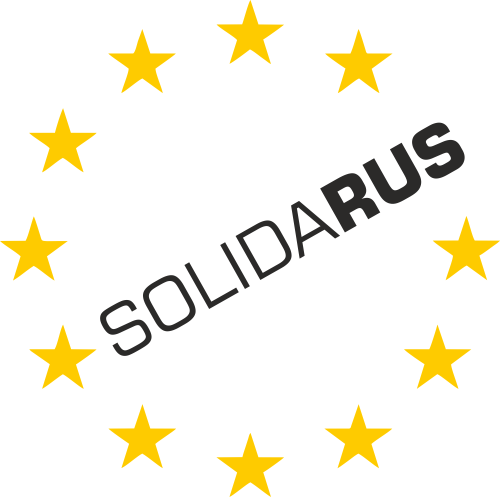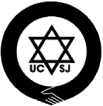Activists Face Violence, Torture and Threat of Imprisonment for Six Years for Poetry Recitation. The Case of Poets Nikolai Daineko, Artyom Kamardin and Yegor Shtovba
On September 26, 2022, police raided the apartment of a 31-year-old Moscow poet Artyom Kamardin. They beat and tortured everyone in the apartment. Mr. Kamardin was raped with a dumbbell. Consequently, Nikolai Daineko, Artyom Kamardin and Yegor Shtovba were prosecuted under part 2 of Article 282 (“Degrading social cohesion with threat of violence with the use of the Internet,” up to 6 years in prison), because of writing anti-war poetry. Here is the story of three poets.
Who are Nikolai Daineko, Artyom Kamardin and Yegor Shtovba?
Nikolai Dmitrievich Daineko, born June 2, 1996, is a resident of Moscow. He is a poet, participant of Mayakovsky Readings event, civil activist, and a rock-musician. Accused under paragraph “a” of part 2 of article 282 of the Criminal Code (“Degrading social cohesion with threat of violence with the use of the Internet”, up to 6 years in prison). He has been imprisoned since September 25, 2022.
Artyom Yuryevich Kamardin, born on October 10, 1990, is a resident of Moscow. He is a poet, participant of Mayakovsky Readings event, and a civic activist. After graduating college, Artyom worked as an engineer. Accused under item “a,” part 2, article 282 of the Criminal Code of the Russian Federation (“Degrading social cohesion with threat of violence with the use of the Internet,” up to 6 years in prison). He has been imprisoned since September 26, 2022.
Yegor Olegovich Shtovba, born on December 26, 2000, is a resident of Moscow. He is a poet, participant of the Mayakovsky Readings event, and a civic activist. He is a student of Russian philology at the Institute of History and Philology specializing in pedagogical education. He is charged under item “a” of part 2 of article 282 of the Criminal Code of the Russian Federation (“Degrading social cohesion with threat of violence with the use of the Internet,” up to 6 years in prison). He has been imprisoned since September 25, 2022.
Case Background
On September 25, 2022, the Mayakovsky Readings, a traditional monthly poetry recitation, took place on the Triumfalnaya Square in Moscow. This tradition was established in Moscow in 1958, as a tribute to poet Vladimir Mayakovsky and after a break was revived in 2009. The last installment of the Mayakovsky Readings had been conceptualized by organizers as “anti-mobilization,” protesting forced mobilization of Russian citizens for the war with Ukraine. On September 25, 2022, about three dozen people attended the readings.
That same evening, videos of the event were published on the Internet. Poet Artyom Kamardin, addressed the audience: “Do you remember how the Luhansk and Donetsk terrorists were called eight years ago? Militia!” He then moved to read his 2015 poem “Kill me, militiaman!” Then, Mr. Kamardin recited what he called “a folk couplet about referendums” (referring to the so-called referenda on the annexation of Ukraine’s regions to Russia: “Glory to Kievan Rus’! Novorossiya — suck it!”.
The police arrived forty minutes after the start of the event and began detaining participants and even members of the audience. Nikolai Daineko, Yegor Shtovba and several other people were taken to the police station, accused of participating in an unauthorized rally and issued protocols.
The Arrest and the Criminal Case
The next day, on September 26, 2022, Ilya Myalkin, the prosecutor of the Investigative Committee’s Tverskoi district department of Moscow, opened a criminal case under paragraph “a” of part 2 Article 282 of the Criminal Code against “unidentified persons.” According to his ruling, during readings of literary works, an unidentified person made statements “regarding members of the volunteer armed formations of the Donetsk and Luhansk People’s Republics” that “allegedly contain signs of inciting hatred or hostility, and also called for the use of violence against them and members of their families.”
On the same day, around 2 p.m., the apartment where Artyom Kamardin, his girlfriend Alexandra Popova, and their roommate Alexander Menyukov lived, was stormed by the police offers yelling “Get down! On the floor!”. All three of them were beaten. Their injuries can be seen in the photographs and police footage, and are confirmed by medical records and testimonies of the victims. Under the pretext of a search, the law enforcers, judging by the photos and Ms. Popova’s testimony, ransacked the apartment.
Artyom Kamardin then reported through his lawyer that during the “search” he was severely beaten and had the bar of a dumbbell forced up his anus, and was compelled to apologize for writing his poems. Alexandra Popova, who, as she says, was aggressed in the adjacent room, heard the sounds of violence towards Artyom Kamardin, and the law enforcers showed her a video of his rape. Alexander Menyukov also heard Mr. Kamardin’s screams.
During the search, Mr. Kamardin was forced to apologize on camera because of his words. The video shows the activist kneeling in an apartment with handcuffs behind his back, his face showing signs of beatings. In the footage, he apologizes for what he said at the Mayakovsky Readings. “I apologize, ask for forgiveness and repent in front of the Russian multinational people for what I said yesterday at theTriumfalnaya Square.” In the recording, Mr. Kamardin promises “never again to read” the poem “Kill me, militiaman!” which he delivered at the Mayakovsky Readings, nor to engage in political activities.
Ms. Popova reported that she was also tortured in the meantime: she was threatened with gang rape, her hair was pulled out, and her face and mouth were covered with superglue. In addition, she discovered that $600 was missing from her apartment after the search.
Mr. Kamardin’s lawyer Leonid Solovyov was not allowed into the apartment, saying that it was not a search, but an operational and investigative measure (ORM), which, allegedly, does not provide for the presence of a lawyer.
Then the detainees were taken to the Investigative Committee’s Tverskoi district office in Moscow and formally interrogated. The ambulance team there did not find any bleeding in Mr. Kamardin, but preliminarily diagnosed concussion of the brain, closed cranial trauma, bruised chest and numerous facial abrasions. The activist was taken to the hospital, where he was examined.
Alexandra Popova and Alexander Menyukov were released as witnesses in the criminal case, and Artyom Kamardin was detained as a suspect and sent to the temporary detention center (IVS).
Nikolai Daineko and Yegor Shtovba were arrested in connection with this case and held for two days as suspects.
After they were released, Ms. Popova and Mr. Menyukov visited doctors. The woman was diagnosed with concussion of brain, contusion of soft tissues of head, hips and shins, crushing of skin of the left hand and closed craniocerebral trauma. The young man sustained multiple contusions to his right auricle, left wrist and back.
On September 28, 2022, a judge of the Tverskoy District Court of Moscow, Anatoly Belyakov, put Yegor Shtovba and Nikolai Daineko in pre-trial detention, and another judge of the same court, Irina Buneeva, put Artyom Kamardin in pre-trial detention for two months as suspects during the preliminary investigation. On October 6 and 7, 2022, Mr. Savchenko, prosecutor of the Investigative Committee, issued orders to bring them in as suspects. On November 24, 2022, the court extended the defendants’ detention for another month.
All three now face up to six years in prison for reading poetry.
Why Does the Memorial Center Recognize Nikolai Daineko, Artyom Kamardin and Yegor Shtovba as Political Prisoners?
Having examined the documents of the case, the Human Rights Center Memorial concludes that Nikolai Daineko, Artyom Kamardin and Yegor Shtovba are the victims of political persecution.
The expert who examined the statements and the poem “Kill me, militiaman!” by Artyom Kamardin at the request of the prosecutor, concluded that they contained linguistic attributes of degrading the “militia”. The expert did not find any incitement to violence, and the Memorial lawyers would agree with him. The leading expert organization in the field of extremism, the Sova Information and Analytical Center, holds the same opinion.
Thus, the prosecutor, in his decisions to bring the defendants in custody, unreasonably refers to the expert opinion and asserts without evidence that the defendants called for violence against the “militia.” This means that the charges under paragraph “a” of Part 2 of Article 282 of the Criminal Code are unlawful.
Lieutenant Savchenko brought up threats of violence as pretext because he could not otherwise bring charges in principle, the Memorial believes. Since 2019, degrading people without the threat of violence is a crime under part 1 of Article 282 of the Criminal Code only after being brought to administrative responsibility for a similar act (Article 20.3.1 KoAP RF) within one year. None of the three defendants had been brought to such responsibility.
In addition, Memorial agrees with the Sova Center’s earlier position that the undefined, evaluative concept of “social group” should be removed from anti-extremist legislation. Its presence in Russian criminal law is criticized not only by human rights activists, but also in the academic legal community. The concept of a social group is not disclosed in the criminal law, and there are no relevant explanations in the acts of the Supreme Court of the Russian Federation.
If we still analyze Artyom Kamardin’s poem for “degrading the dignity” of the Donbass “militia,” then we can call the work provocative, and his words could possibly be perceived as insulting by the “militia” and their family members. However, Memorial lawyers believe that people, especially poets, have the right to express angry irony, negative emotions, and critical assessments of other people and groups. In the poem the author obviously expresses his negative attitude to the fratricidal war in Ukraine, indicates his rejection of war crimes provoked by Russian state propaganda, which were committed by the “militia” with the explicit support of the Russian state. The author’s rejection of the unprovoked armed aggression of his country against the people of the neighboring state goes as far as “screaming” and “calling” on the “militia” to kill him.
In fact, there is no explicit humiliation of the “militia” in the poem: neither a statement about their inferiority, nor a statement about the superiority of others over them. The poem only expresses, in an artistic, figurative form, the author’s legitimate and justified critical attitude toward this group.
In the Memorial’s opinion, Artyom Kamardin’s harsh rhetoric is permissible within the framework of the exercise of the rights to freedom of speech and expression, guaranteed by Art. 29 of the Russian Constitution and international conventions. Moreover, it is worth taking into account that the validity of his critical position regarding the “militia” is proven by numerous factual data and court decisions, that this is criticism of persons who are members of illegal armed formations, with whose hands the Russian authorities unleashed a war against the people of Ukraine.
Artyom Kamardin’s speech did not contain incitement to any actions against the “militia”, and the probability of harm to them as a result of his speech is practically zero. In addition to the lack of inherently humiliating dignity of this group in the speech in question, recall that it was made before an audience of only less than three dozen peaceful, non-aggressive Muscovites.
The texts of the investigator’s rulings on arraignment of all three defendants are short and identical. They do not specify what specific criminal act each of them committed. Memorial hypothesizes that the prosecution might claim that Nikolai Daineko and Yegor Shtovba repeated the incriminating statements in the square after Artyom Kamardin. Or were they just nodding? Memoria considers imprisonment and prosecution for such “deeds” to be obviously inhumane, unjust and unlawful.
The independent human rights project “Support for Political Prisoners. Memorial”, which continues the work of the thematic Program of the liquidated by the state HRC Memorial, in accordance with the international guidance on the definition of “political prisoner,” finds that the criminal case against Artyom Kamardin, Nikolai Dayneko and Yegor Shtovba is politically motivated, aimed at involuntary termination of their expression, public activities of critics of the authorities and intimidation of society as a whole, i.e. consolidation and retention of power by subjects of authority. Their imprisonment violated the rights to freedom of speech, fair trial, and other rights and freedoms guaranteed by the Russian Constitution and the International Covenant on Civil and Political Rights. Based on the above, Memorial considers Artyom Kamardin, Yegor Shtovba, and Nikolai Daineko political prisoners and calls for his release and for a review of his sentence with respect for the right to a fair trial.













